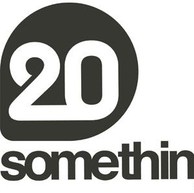
Confidence
The self-esteem and confidence issues that plague you in high school do lessen in early adulthood, but their residue can grow and mutate into another form of ugly that will have you skipping out on opportunities, in unhealthy friendships or romantic relationships, letting fear keep you from things that will help you grow, stifling your identity, able to be easily manipulated and woefully indecisive. Not believing in myself enough has stopped me from pursuing my passions because I don’t believe my dreams are in reach. When I have great opportunities presented to me, I downplay my talents, thinking they’re not up to par. Who knows what advantageous ideas or details I haven’t and don’t think of because I go into things with a defeated attitude. I could be subconsciously causing myself to fail before I even begin. I don’t have any fire-proof anecdotes on how to overcome low confidence, unfortunately. What I can offer, however, is that comparing yourself to other people will make things worse, don’t beat yourself up too long for any disappointments or failures, and congratulate yourself for even the smallest things you do well or are good about you. Everyone is good at and good for something; the cliché` is true.
“…We often block our own blessings because we don’t feel inherently good enough or smart enough or pretty enough or worthy enough. You’re worthy because you are born and because you are here. Your being here, your being alive makes worthiness your birthright. You alone are enough.”-Oprah
Balance
I believe balance is the most essential key to a functioning, thriving life. Everything in moderation; operating in extremes is guaranteed to shoot you in the foot. When interviewing people for this article, many said there was either too much or too little of a particular thing. Don’t be all work and no play or all play and no work. Don’t spend all your time with your mate instead of your friends and vice-versa. Lack of balance has come to be one of the biggest problems in my life; being too optimistic, too cynical, all up in church, not going at all, all about one career, all about another one, too focused on the future, too focused on the present. Keeping myself in one spectrum works for a while, but eventually, it always ends up being a disadvantage.
Awareness/Identity
Time flies and everything happens so fast to the point that you might not indulge in the simple things that great memories are made of or appreciate and respect the things and people that you should. Take time out to do that. Start a gratitude journal, documenting things that you’re grateful for each day or each week. It sounds cheesy, but when I feel like I have nothing and my life seems like it’s in shambles, I find hope in what I write.





 RSS Feed
RSS Feed